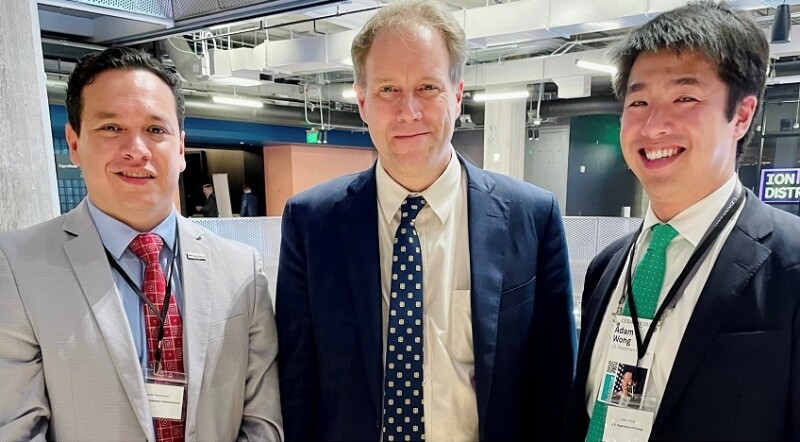Brazil has moved one step closer to achieving an unprecedented milestone; it is on the cusp of becoming the first South American nation to establish a legal framework for carbon capture and storage (CCS). On 29 November, a special committee in Brazil’s Ministry of Mines and Energy approved Bill 1425/2022, which aims to provide a legislative framework for CCS activities in the country, an effort the nation’s senate already approved in August. Brazil is now one step closer to joining the ranks of Canada and the US, which have legal frameworks for CCS. Although further legislative steps through the Chamber of Deputies are still required to establish this framework firmly, momentum continues to build.
This article aims to shed light on what led to this momentum and what may come next. This includes activity taken by Petrobras, Brazil’s national oil company, and CCS Brasil, a Brazilian nonprofit organization. CCS Brasil has directly inspired Bill 1425/2022 and has engaged on an international level with the US Department of Energy (DOE).

Brazil’s Momentum
The favorable conditions and events that occurred before Bill 1425/2022 advanced to its current state are highlighted by Brazil’s President Luiz Inácio Lula da Silva and Petrobras CEO Jean Paul Prates. In 2022, the president expressed Brazil’s intention to pursue a net-zero future at the United Nations’ COP 27 summit. At COP 28, he affirmed that the goal remains in 2023. Crucially, the United Nations has given its support to CO2 sequestration.
At the 2023 Offshore Technology Conference (OTC), Prates underscored Petrobras’ intention to pursue CCS while establishing CCS hubs with other companies in Brazil, including Shell. To further this, a pilot project capable of sequestering up to 100,000 tons of CO2 annually is being pursued. Equinor also should be considered for participation in CCS hubs since it has acquired a stake in the Bayou Bend CCS hub in the US Gulf of Mexico, along with Talos Energy, Carbonvert, and Chevron.
Petras, when he served as senator before becoming Petrobras’ CEO, supported not only Bill 1425/2022 but also two bills for hydrogen and offshore wind. This, in some ways, mirrors the early impetus given for the watershed Inflation Reduction Act (IRA) in the US.
Furthermore, CCS Brasil also attended the 2023 OTC (Fig. 1) and presented key findings from its CCS report, hailed as the first of its kind in Brazil. Out of six crucial points, Bill 1425/2022 was the report’s top priority. This is thanks to CCS Brasil co-founder Isabela Morbach, a practicing attorney whose doctoral thesis in energy planning at the University of São Paulo helped inspire Bill 1425/2022. As a result, CCS Brasil was able to provide critical and ethical insights on the bill and its future positioning. That is why CCS Brasil engaged and educated myriad sectors on local and international levels to increase the potential of this legislation reaching its status in November.
This extends to CCS Brasil presenting to Brazilian senators and state and federal deputies and doing the same with the US Department of Energy. Pivotally, CCS Brasil Director Nathália Weber emphasized that not having established legislation can “hinder developing more CCS projects … as it creates the most uncertainty for investors and companies aiming to decarbonize.”

Engaging With International Stakeholders
Keeping in the spirit of its meeting with the US DOE, CCS Brasil provided insight on how the bill was progressing and its potential effects on the sidelines of CERAweek in Houston. Brad Crabtree, assistant secretary for fossil energy and carbon management at the DOE, and the author, who is the international chairman of CCS Brasil, facilitated this meeting. The importance of the interaction between the two organizations lies in the following: Because the US has CCS facilities in operation, its experience can greatly benefit Brazil, as well as other nations. This beneficial experience extends to the IRA and associated incentives for carbon capture from which Brazil can learn, especially if Bill 1425/2022 is fully enacted.
Above all, for the world to achieve net zero, multinational activities and engagement are essential. This is exemplified by delegates from the US DOE traveling to Brazil and Weber traveling to a DOE-backed event in Washington, D.C.
Ultimately, the concerted efforts of multiple parties in Brazil, including that of CCS Brasil, would lead to the November approval of Bill 1425/2022. Morbach provided her comments on the multibillion-dollar impact that this legislation can have, which strengthens Brazil’s net zero objectives. Even with the legislation’s current state, however, international engagement continues to be important. This is why CCS Brasil attended COP 28, where Morbach spoke at a Clean Air Task Force carbon capture session with international stakeholders such as Belladonna Maulianda, an Indonesian government energy adviser (Fig. 2). Weber once more met with DOE officials, including Crabtree, and low-carbon value chain stakeholders from Brazil (Fig. 3). This level of multicontinental engagement invariably enhances knowledge sharing and further positions Brazil for ratification of Bill 1425/2022.


What Happens Now?
Now that final approval is pending for Bill 1425/2022, Brazil’s adoption of components from the IRA will be critical because of the US law’s unrivaled incentives and framework. To what extent components of the IRA will be applied in Brazil, should the bill be ratified, will be key because it can be a catalyst for fast-tracking sequestration initiatives. The knowledge and experience with funding carbon capture hubs that the US has—such as the $1.2 billion provided by the DOE for direct air capture—can help expand Brazil’s nascent low-carbon economy.
The legislation also can alleviate the decarbonization pressure faced by European oil companies operating in Brazil, such as Equinor and Shell, by decarbonizing their projects and applying their CCS expertise and project experience. Equinor is well-positioned for this given that it has sequestered millions of tons of CO2 at Sleipner since 1996 and Snøhvit since 2008. Additionally, in Canada, Shell operates one of the few CCS facilities in the western hemisphere (which has captured millions of tons of CO2), and this experience also can be used in Brazil. Through the companies’ collaboration with Petrobras, a winning formula for sequestration can be unlocked.
Full Circle
Alessandra Simone, a member of CCS Brasil’s advisory board, co-authored a seminal book on CCS in 2009 as a result of her direct involvement in Shell’s Canadian project. The book, A Technical Basis for Carbon Dioxide Storage—to which Petrobras contributed—is available at no cost and is featured by the United Nations’ Framework Convention on Climate Change, which underscores how crucial knowledge sharing is. This has the potential to facilitate the implementation of CCS technology beyond Brazil and throughout South America. Lastly, through a concerted and collaborative approach, Brazil can be a pioneer in South America while setting a referenceable CCS framework for developing nations.


